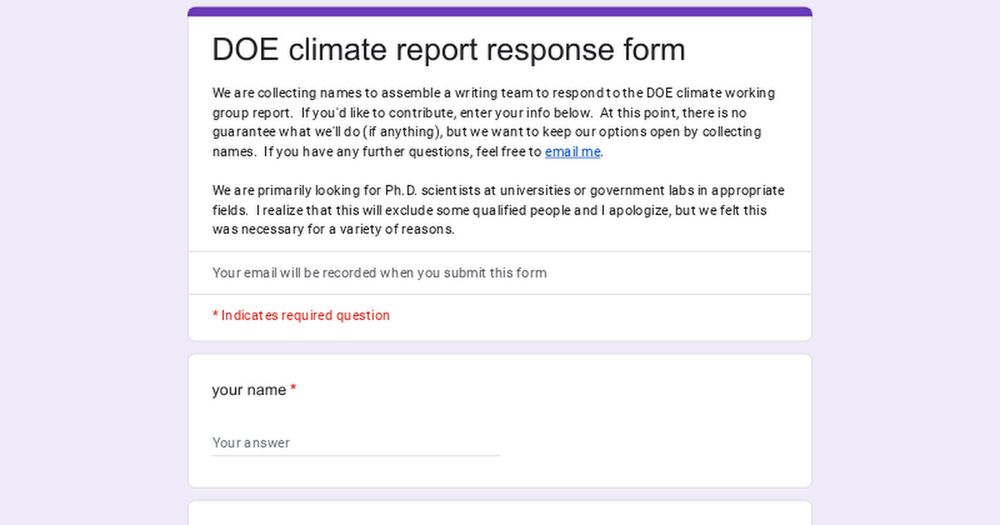Casey Crownhart
@caseycrownhart.bsky.social
8.8K followers
160 following
110 posts
Climate tech reporter at MIT Technology Review ~ big fan of batteries and also the New York Mets.
Want me in your inbox? Sign up for The Spark: technologyreview.com/spark
Posts
Media
Videos
Starter Packs
Reposted by Casey Crownhart
Reposted by Casey Crownhart
Reposted by Casey Crownhart
Andrew Dessler
@andrewdessler.com
· Jul 31

DOE climate report response form
We are collecting names to assemble a writing team to respond to the DOE climate working group report. If you'd like to contribute, enter your info below. At this point, there is no guarantee what we'll do (if anything), but we want to keep our options open by collecting names. If you have any further questions, feel free to email me.
We are primarily looking for Ph.D. scientists at universities or government labs in appropriate fields. I realize that this will exclude some qualified people and I apologize, but we felt this was necessary for a variety of reasons.
forms.gle
Reposted by Casey Crownhart
James Temple
@jtemple.bsky.social
· Jul 25

How nonprofits and academia are stepping up to salvage US climate programs
The Data Foundation, the American Geophysical Union, and a coalition of universities are scrambling to ensure that the nation accurately assesses the growing dangers of global warming.
www.technologyreview.com





